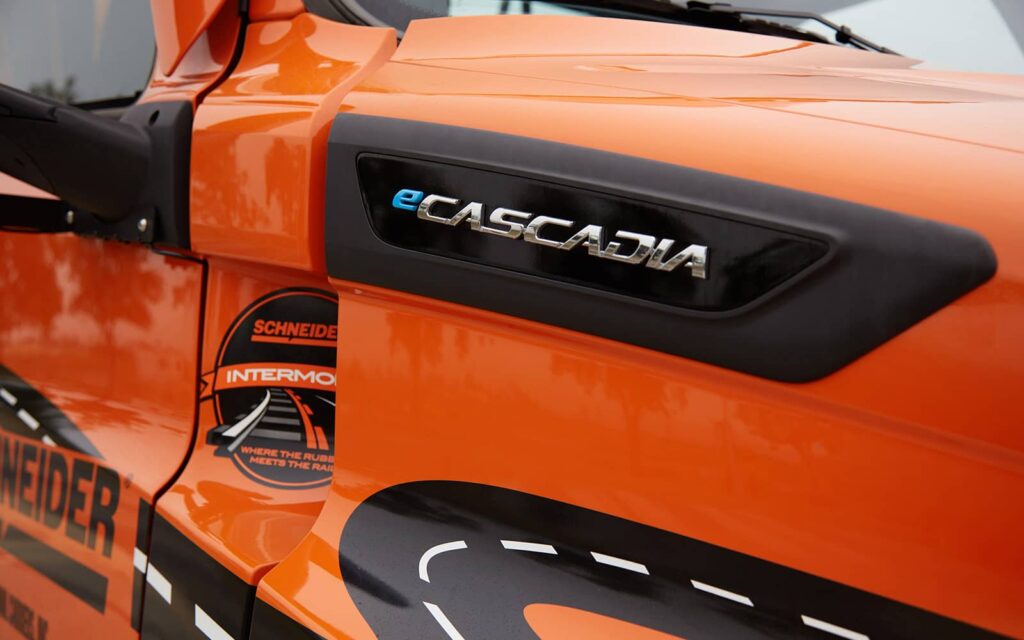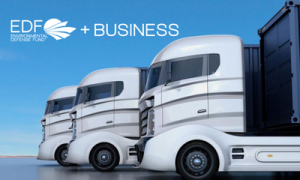The road to zero: How strategic value chain partnerships can create transportation electrification opportunities
Trucking plays a pivotal role in the U.S. by facilitating the transportation of over 70% of all goods, generating a revenue of approximately $940 billion in 2022. With a workforce of over 3.5 million people, the trucking industry stands as a crucial backbone of the U.S. economy. However, trucking also contributes to over a quarter of transportation emissions, posing a substantial environmental challenge.
Most companies with trucks on the road face a considerable sustainability hurdle, with over 70% of their total emissions stemming from their supply chains, or in their Scope 3. Addressing these emissions poses a unique challenge as they are not directly within the control of the companies. However, a strategic approach can overcome this challenge and requires engaging extensively with supplier partners by fostering strong collaboration and implementing comprehensive sustainability measures throughout the supply chain.
PepsiCo North America, through Frito-Lay, and Schneider National offer a blueprint for other shippers and transportation partners to follow to drive down Scope 3 transportation emissions.
A Successful Shipper-Carrier Collaboration
The partnership between Frito-Lay and Schneider National is a notable illustration of effective collaboration.
PepsiCo’s strategic plan to meet climate and social goals, pep+ or PepsiCo Positive, reflects a bold commitment to environmental sustainability to reduce greenhouse gas (GHG) emissions by over 40% by 2030 compared to a 2015 baseline and reach net zero by 2040. Notably, with a fleet of over 30,000 vehicles on the road, the company has taken significant strides by deploying 36 Tesla Semi trucks to date, reinforcing its leadership in driving positive environmental change within the fleet industry.
However, PepsiCo recognizes that most of its carbon footprint in 2022, approximately 93%, was attributed to its Scope 3 emissions. Third-party transportation and distribution alone account for 18% of these emissions where they are working actively to identify opportunities with their strategic, direct tier 1 suppliers.
Schneider also boasts a fleet exceeding 10,000 trucks in active operation across the U.S., demonstrating a clear dedication to emissions reduction with ambitious goals targeting a 60% reduction in CO2 emissions per mile by 2035. Notably, Schneider distinguishes itself with an impressive collection of 94 electric vehicles (EVs): 92 Class 8 Freightliner eCascadias and two electric terminal tractors in Southern California. Their South El Monte facility also accommodates 16 350 kW dual-corded dispensers, facilitating the simultaneous charging of up to 32 trucks. The planning of this project at the South El Monte facility commenced in September 2021 with construction completed in May 2023.
Schneider’s climate efforts extend beyond their own operations, as they actively collaborate with clients to comprehend, measure, and mitigate their Scope 3 emissions. This is where the enduring partnership between PepsiCo and Schneider, spanning over two decades, stands as a testament to their collaborative success. These efforts led to the first third-party transportation shipment on an electric truck for PepsiCo globally, and Schneider established its first EV-only contract transport on its fleet out of the company’s South El Monte facility.
A Recipe for Success
The partnership between PepsiCo and Schneider provides an actionable blueprint for other companies seeking to drive down Scope 3 emissions from trucking.
- Establishing a common vision.
Critically for the success of this partnership, Schneider and PepsiCo share a common vision, recognizing the substantial impact they can collectively make through continuous innovation in transportation efficiency, and having aspirational public sustainability goals and targets. Setting an aspirational goal that serves as the North Star is an important first step and an impactful action that fleets and shippers can undertake together.
- Aspirations backed by financial commitments.
Schneider collaborates with numerous shippers, yet PepsiCo stands out due to its unwavering commitment and financial willingness to meet its goals. PepsiCo’s readiness to invest in realizing its sustainability objectives demonstrated its proactive approach and solidified its position as an exemplary partner for Schneider to work with to collectively achieve their emission reduction goals.
- Optimizing freight and shipper locations to scale
The companies partnered to optimize freight and shipper locations, focusing on efficiency, and delivering operational reliability and performance. One crucial criterion for the collaboration between the two companies was the ability to leverage the first-mover advantage and expand it both geographically and operationally to substantially reduce their GHG emissions burdens. The joint shipments between PepsiCo & Schneider are intermodal inbound and outbound dray moves, including service to the Frito-Lay’s Rancho Cucamonga distribution center, with plans for further expansion and conversion of more lanes to EV shipments in the future. These EV trucks are operating within a range of 200 miles with over 30% of the trucks running two shifts daily.
- Transparency, trust, and agility
Embracing and implementing electric vehicles marked a significant paradigm shift, emphasizing the importance of transparency and trust in strategic partnerships. In the instance of PepsiCo and Schneider, their collaboration wasn’t new; rather, it was built on decades of shared experience, allowing for a deep understanding of each other’s businesses, and fostering a relationship grounded in trust and familiarity. The introduction of EVs presented numerous challenges regarding the operation, scheduling of truck usage, the load, and length of each haul, as well as the timing and management of charging. Furthermore, there was added complexity related to geographic conditions and considerations. Negotiating these hurdles involved a significant amount of trial and error. Being nimble and agile about these trials proved essential in overcoming these obstacles and ultimately delivering successful results.

100% Emissions Reduced
Since April 2023, Frito-Lay and Schneider completed 779 EV shipments together, totaling more than 30,000 miles, effectively preventing about 48 metric tons of CO2 from being emitted, which is equivalent to replacing ~4,700 gallons of diesel fuel. Because Schneider also purchases Renewable Energy Certificates (RECs) to cover the electrical load that charges the electric vehicles, there are no overall emissions—so the joint Frito-Lay and Schneider operations have accomplished a 100% emissions reduction.
This joint commitment to fostering innovation in the realm of transportation underscores their dedication to not only maintaining a successful partnership but also actively contributing to environmental sustainability by leveraging advancements in efficiency within the logistics and transportation sectors. PepsiCo and Frito-Lay have acknowledged this longstanding relationship by awarding Schneider the prestigious PepsiCo Asset Sustainability Carrier Award in 2022 and 2023. This case study showcases the potential for companies to work together, share best practices, and implement innovative solutions to reduce emissions, paving the way for a more sustainable future.
To learn more, please get in touch with Maaz Haider, EDF’s transportation expert.
